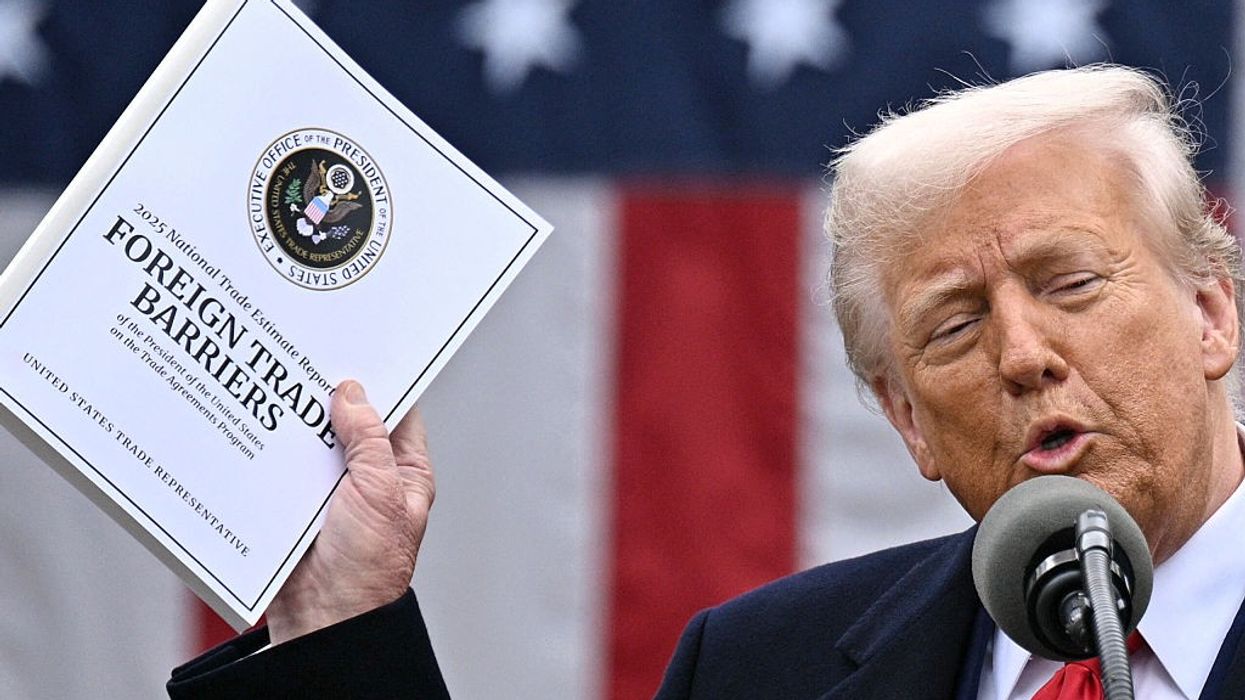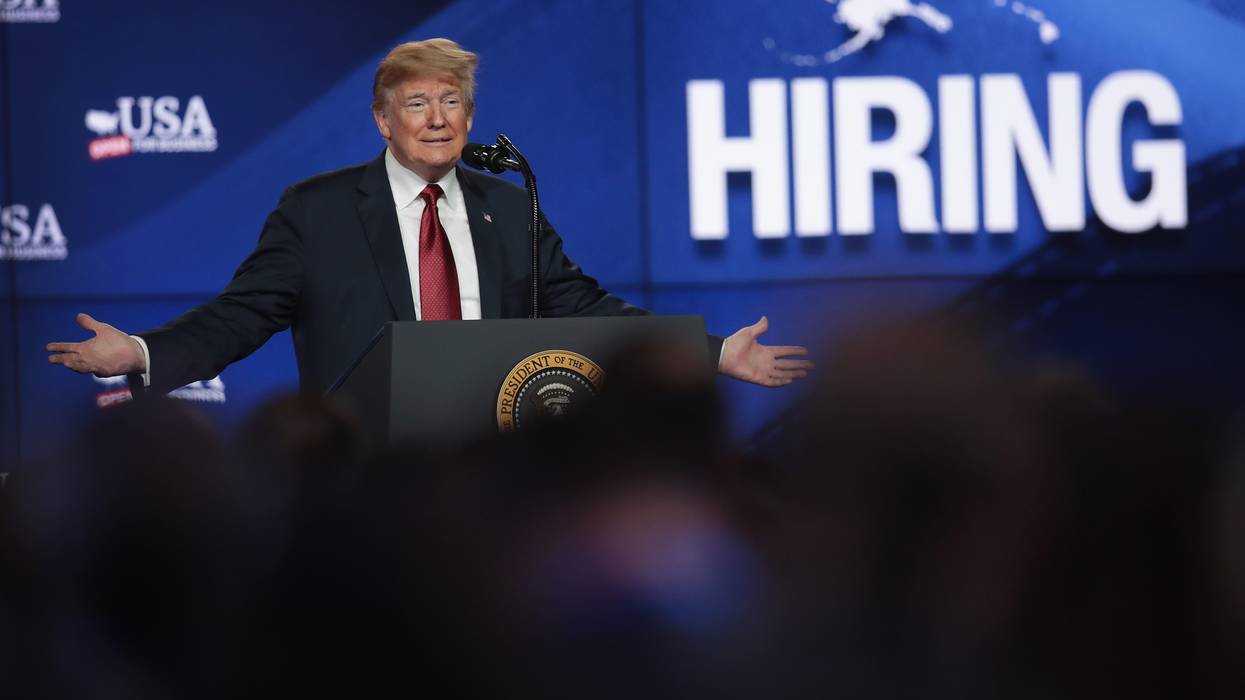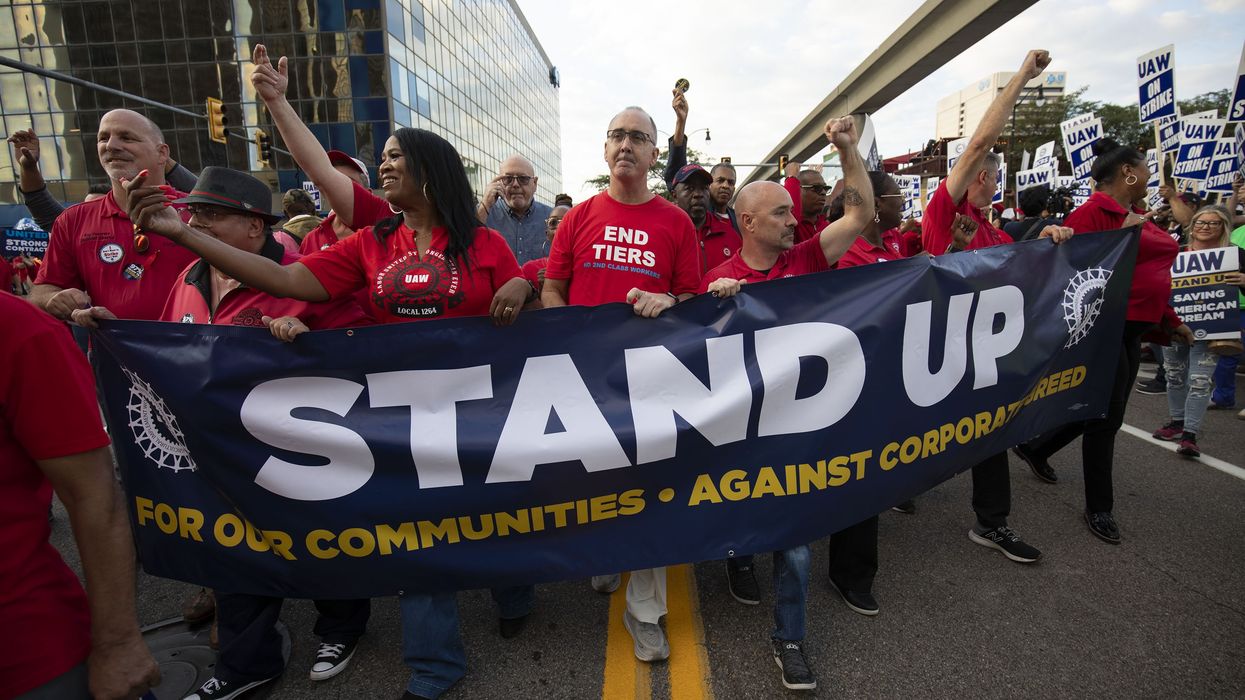"We urge Stellantis not to renege on the promises it made to American autoworkers and to provide details on the timelines for these investments," the senators wrote.
Meanwhile, 56 members of the Congressional Labor Caucus led by Reps. Debbie Dingell (D-Mich.), Mark Pocan (D-Wis.), and Donald Norcross (D-N.J.) sent a separate letter, this one to Stellantis' board of directors, calling on Chrysler's parent company to "follow through on promises to workers to invest in its domestic workforce."
"Given the significant governmental financial support for Stellantis over the years, we have become alarmed by a steady stream of reports indicating your plans to lay off auto workers and move production out of the United States, and that you are failing to honor contractual commitments that Stellantis made as part of the 2023 national collective bargaining agreement," the letter states.
Last November, UAW workers at the Big Three—GM, Ford, and Stellantis—ended a six-week "stand-up strike" and signed new contracts with better pay, benefits, and working conditions. Stellantis committed to making nearly $19 billion in new domestic investments, reopening its "indefinitely idled" Belvidere, Illinois plant, continue manufacturing the Dodge Durango SUV in Detroit through 2025, and build the next-generation Durango in the city starting in 2026, among other promises.
However, according to the senators' letter:
Stellantis is now delaying planned investments to reopen and expand the Belvidere assembly plant, leaving behind thousands of American workers who built the company into the auto giant it is today. We are also concerned with reporting that Stellantis is planning to move production of the next-generation Dodge Durango out of the United States, after previously announcing layoffs that threaten the economic security and well-being of thousands of autoworkers.
Moreover, Stellantis has stated publicly that it plans to source 80% of supply from "low-cost countries" like Mexico. By your own admission, Stellantis' growth plan hinges on shifting "industrial production into cost-competitive countries" like Mexico, where workers are making substandard wages. These actions violate the obligations Stellantis made to the UAW.
"Taxpayers are currently funding consumer incentives for several Stellantis vehicles and Stellantis is slated to receive $585 million under the Domestic Manufacturing Conversion Grant Program," the House lawmakers noted in their letter. "Under this program, Stellantis is on track to pocket $335 million to reopen the Belvidere Assembly plant in Belvidere, Illinois. As stewards of taxpayer funding, we have a responsibility to ensure these investments benefit the public interest."
"We hope it is clear to you that the American people will not tolerate taxpayer subsidies for a company that is cutting production and slashing jobs—all the while it increases executive compensation, dividends to shareholders, and stock buybacks," the letter adds.
The senators noted that "this year, Stellantis has spent over $8 billion on stock buybacks and dividends to benefit its wealthy executives and stockholders, and that "last year, while blue-collar auto workers in Belvidere were being laid off indefinitely, you were able to receive a 56% pay raise boosting your total compensation to $39.5 million, which made you the highest paid executive among traditional auto companies."
"During the first six months of this year, Stellantis has generated over $6 billion in profits, making it one of the most profitable auto companies in the world," the letter adds. "We believe that if Stellantis can afford to spend over $8 billion this year on stock buybacks and dividends, it can live up to the contractual commitments it made to the UAW."
Last week, the UAW published a powerful video in which union president Shawn Fain makes some of the same demands that are in the lawmakers' letters.
"For years, this company has picked us off, plant by plant, and our leadership lacked the will and the means to fight back," Fain said in the video. "Those days are over."
Fain continued:
Stellantis management has launched a campaign of intimidation and harassment against our members, our local unions, and the International UAW to try to get us to back down from the fight to save our jobs.
I have bad news for Stellantis: We're not going anywhere.
Their corporate lawyers are claiming that our fight to keep jobs in Belvedere, Detroit, and America is based on what they call "sham grievances."
But here's the real sham: Over the past nine weeks, Stellantis has spent over a billion dollars on stock buybacks, all while saying they can't afford to keep their commitments to their own employees. In fact, Stellantis has spent $3 billion on stock buybacks this year alone.
The real sham is this campaign of intimidation and interference in our union's business. Stellantis managers are calling members, threatening their jobs. They're emailing our local presidents threatening lawsuits. This is what happens when a CEO is cornered and isolated. His dealers in America and Europe are turning against him. His suppliers and shareholders are suing him, and he's pushing our customers away.
And the sham is that he will walk away with a golden parachute of millions and millions of dollars, while American autoworkers are left holding the bag.
"The sham took place this week when he was asked about stepping down or being replaced, Carlos Tavares said, and I quote, 'I signed a contract,'" Fain said. "Well, Carlos, the workers at Stellantis signed a contract too, and it's time for you to honor it."
Calling on UAW members to sign a strike authorization pledge over Stellantis' broken promises, Fain vowed that "we will once again save this company from mismanagement, from corporate greed, and from killing tens of thousands of good jobs."
"But only if we stick together," he stressed. "So, are you in? If you are, sign your strike authorization pledge today. And you can do that by going to shitcancarlos.com."
"Let the company know where you stand," Fain added. "And together, let's tell Stellantis: The days of plant closures are over, and Carlos Tavares needs to go."



